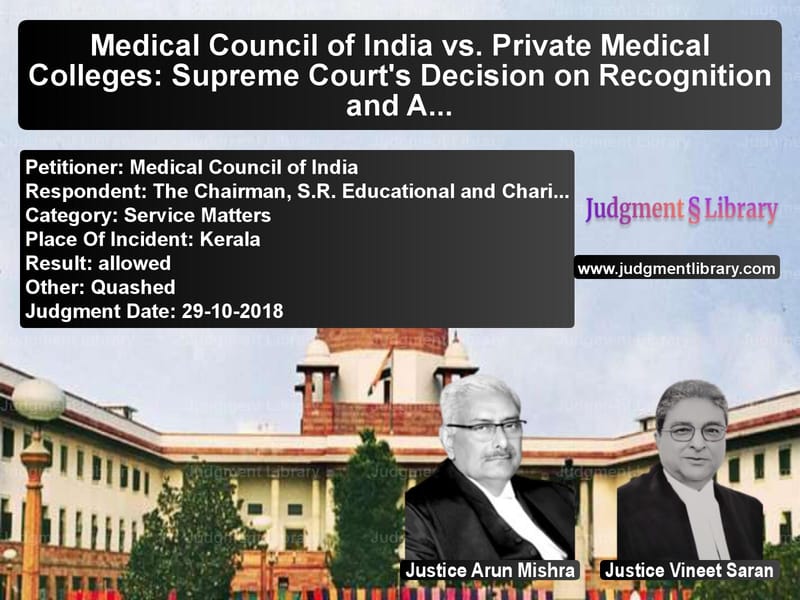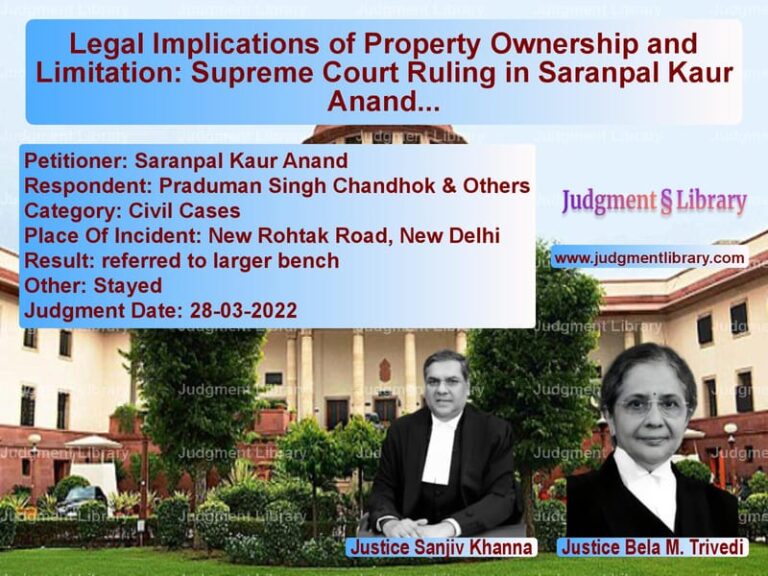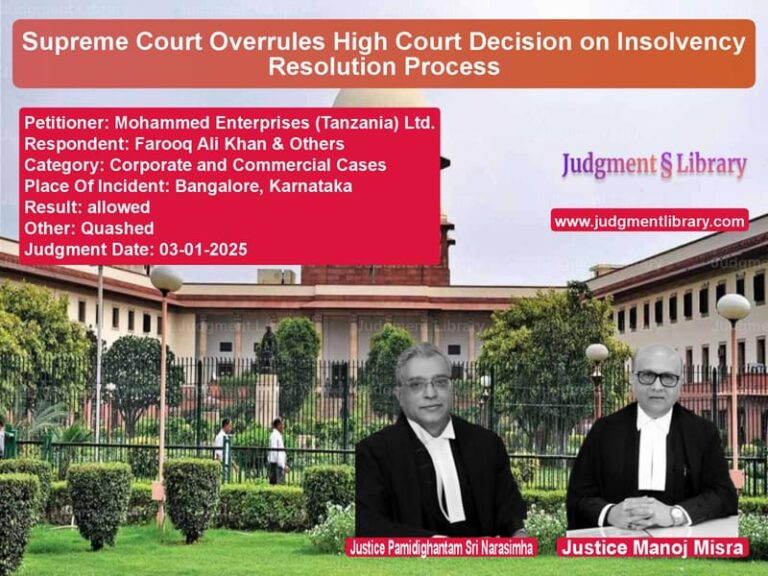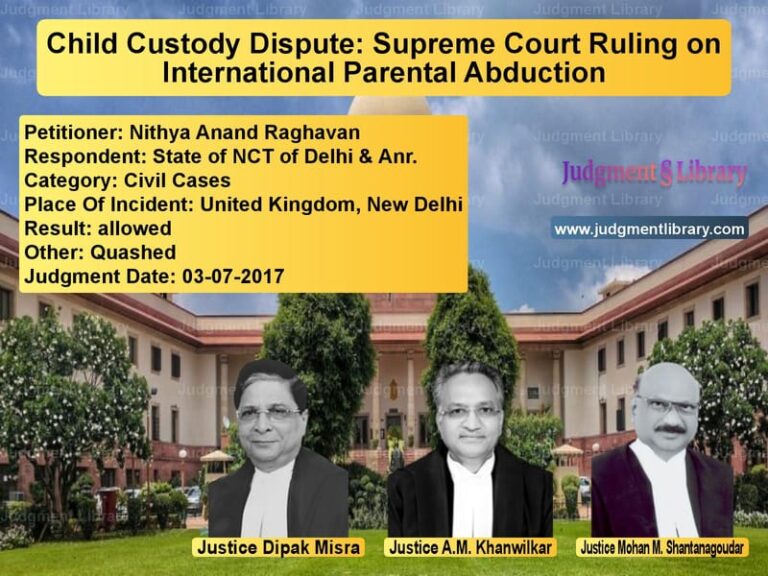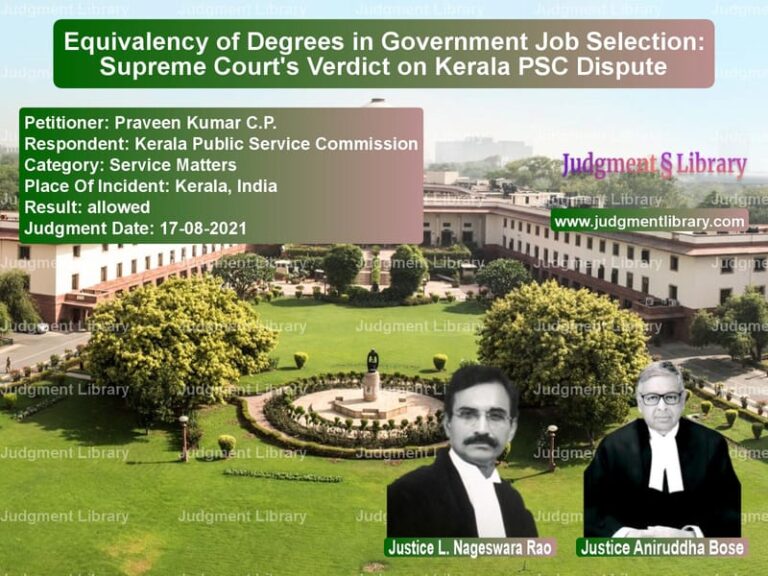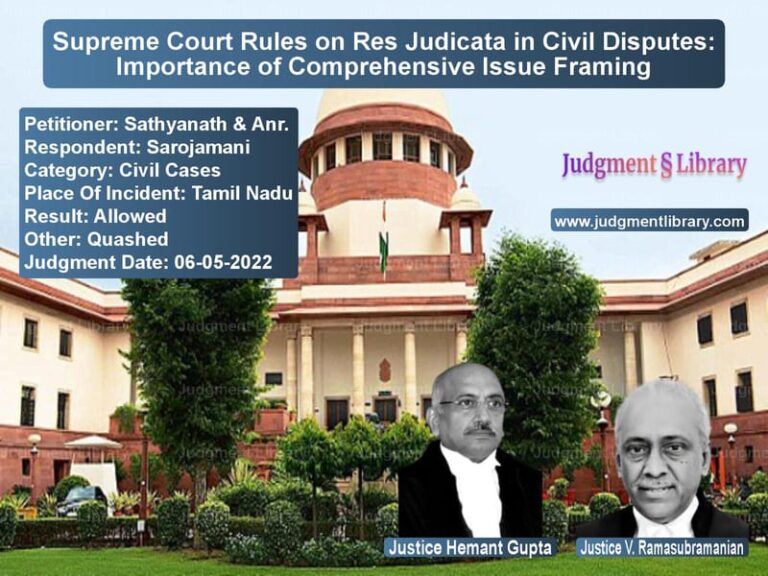Medical Council of India vs. Private Medical Colleges: Supreme Court’s Decision on Recognition and Admissions
The Supreme Court of India recently delivered a crucial verdict on medical college admissions and recognition, addressing the ongoing dispute between the Medical Council of India (MCI) and private medical institutions. The case revolved around the denial of renewal permissions and recognition to several medical colleges, prompting the institutions to challenge the decision in the Kerala High Court. The High Court ruled in favor of the colleges, directing student admissions for the academic year 2018-2019. However, the Supreme Court overturned this decision, reinforcing the authority of the MCI and emphasizing the importance of quality education in medical institutions.
Background of the Case
The appeals arose from the judgments of the Kerala High Court, which quashed the Government of India’s decision to deny renewal permission and recognition to certain private medical colleges. The High Court also directed the Commissioner for Entrance Examinations to allocate students to these colleges. The MCI, aggrieved by this order, challenged it before the Supreme Court, arguing that the colleges had not rectified the deficiencies found during inspections.
Key Issues in the Case
- Whether the High Court erred in allowing student admissions despite non-compliance with MCI regulations.
- Whether MCI’s refusal to review its decision due to time constraints was justified.
- The impact of deficiencies such as lack of faculty, inadequate patient load, and absence of required infrastructure on medical education.
- The applicability of Regulation 8(3) of the Medical Council of India’s Establishment of Medical College Regulations, 1999.
Petitioners’ Arguments (Medical Council of India)
- The MCI contended that the High Court’s ruling undermined its regulatory authority and the provisions of Regulation 8(3), which prohibits compliance verification if gross deficiencies exceed permissible limits.
- It argued that the deficiencies found in these medical colleges were serious, including inadequate faculty, shortage of residents, insufficient patient load, and lack of surgical procedures, making them unfit for medical education.
- The MCI asserted that the High Court had overstepped its jurisdiction by directing student admissions, as such decisions should be based on the regulatory framework and expert assessment.
- It cited previous judgments, including Medical Council of India v. Vedantaa Institute of Academic Excellence Pvt. Ltd., where the Supreme Court upheld the MCI’s authority to regulate medical colleges.
Respondents’ Arguments (Medical Colleges)
- The colleges argued that they had rectified most deficiencies and should have been given an opportunity to undergo fresh inspections.
- They contended that the MCI’s refusal to reconsider its decision violated the principles of natural justice and procedural fairness.
- They claimed that the deficiencies were either minor or had been misrepresented in the assessment reports.
- The colleges urged the court to consider the interests of students who were deprived of admissions due to the regulatory delays.
Supreme Court’s Observations and Ruling
The Supreme Court carefully examined the regulatory framework, previous case laws, and the impact of deficiencies on medical education. The court held:
- Regulation 8(3)(1)(a) clearly states that if faculty shortages exceed 30% or bed occupancy is below 50%, compliance verification for renewal permission cannot be considered in that academic year.
- Similarly, Regulation 8(3)(1)(b) applies stricter conditions for later renewals, mandating minimum faculty and patient load for continued approval.
- The High Court erred in granting relief to the medical colleges without considering these binding regulations.
- The court emphasized that allowing non-compliant colleges to admit students would compromise the quality of medical education and produce underqualified doctors.
Accordingly, the Supreme Court set aside the Kerala High Court’s order and reinstated the MCI’s decision to deny renewal permissions and recognition for the academic year 2018-2019.
Impact of the Judgment
This verdict has significant implications for medical education in India:
- Strengthening MCI’s Authority: The ruling reinforces the MCI’s role as the primary regulator of medical education, ensuring that only qualified institutions receive recognition.
- Ensuring Quality Education: The judgment prevents institutions with severe deficiencies from admitting students, thereby safeguarding the integrity of medical training.
- Balancing Judicial Intervention: The court clarified that while judicial review is essential, it should not override statutory regulations established by expert bodies.
Conclusion
The Supreme Court’s ruling in this case underscores the importance of regulatory compliance in medical education. It sends a strong message that deficiencies in faculty, infrastructure, and patient load cannot be overlooked in the interest of student admissions. By upholding MCI’s regulatory framework, the court has prioritized the quality of medical training over procedural leniency, ensuring that future medical professionals receive education in well-equipped and competent institutions.
Petitioner Name: Medical Council of India.Respondent Name: The Chairman, S.R. Educational and Charitable Trust & Others.Judgment By: Justice Arun Mishra, Justice Vineet Saran.Place Of Incident: Kerala.Judgment Date: 29-10-2018.
Don’t miss out on the full details! Download the complete judgment in PDF format below and gain valuable insights instantly!
Download Judgment: Medical Council of I vs The Chairman, S.R. E Supreme Court of India Judgment Dated 29-10-2018.pdf
Direct Downlaod Judgment: Direct downlaod this Judgment
See all petitions in Education Related Cases
See all petitions in Public Interest Litigation
See all petitions in Fundamental Rights
See all petitions in Judgment by Arun Mishra
See all petitions in Judgment by Vineet Saran
See all petitions in allowed
See all petitions in Quashed
See all petitions in supreme court of India judgments October 2018
See all petitions in 2018 judgments
See all posts in Service Matters Category
See all allowed petitions in Service Matters Category
See all Dismissed petitions in Service Matters Category
See all partially allowed petitions in Service Matters Category

